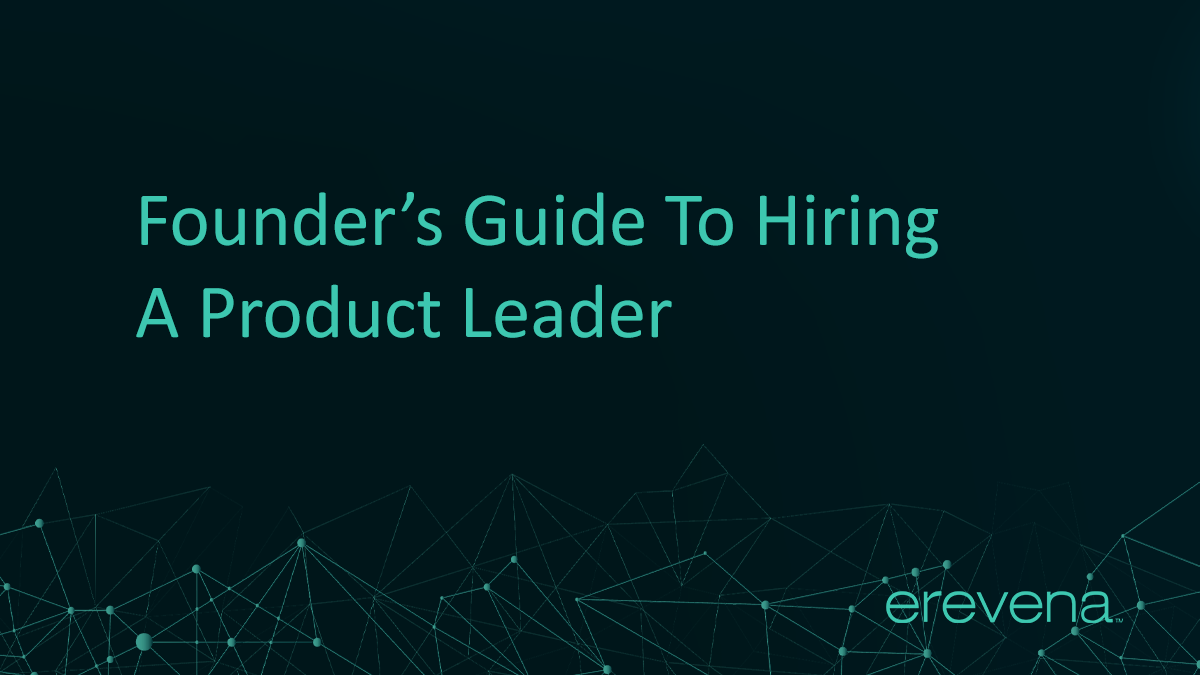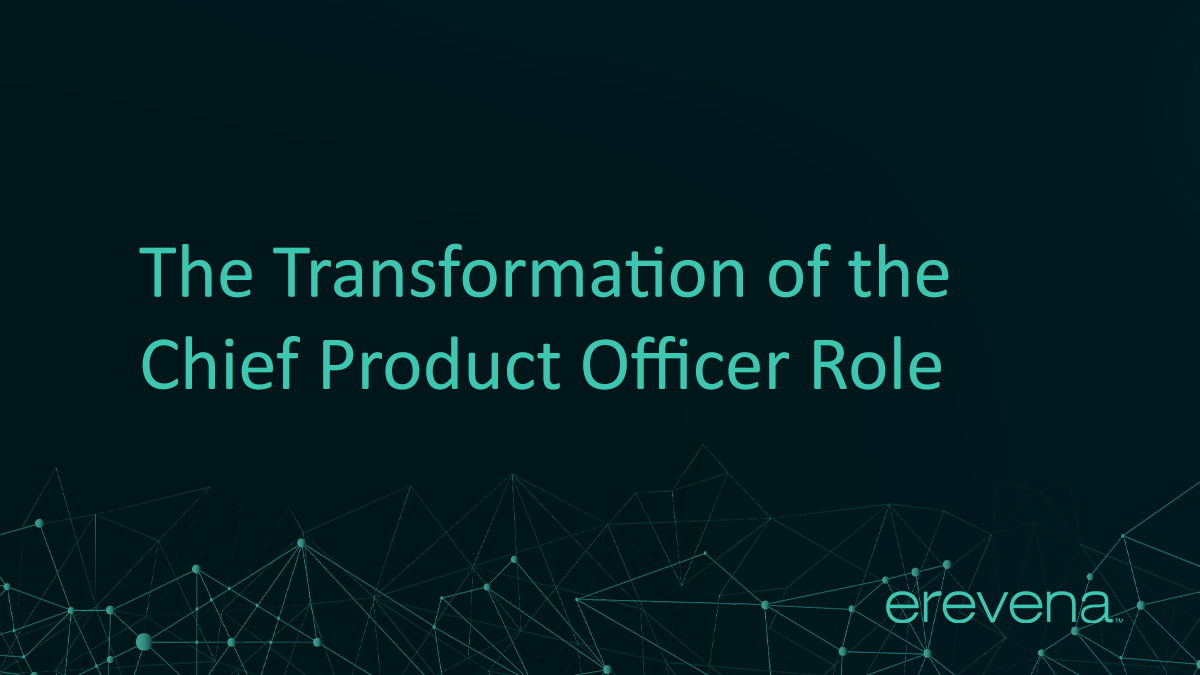Some of the most exciting work we do at Erevena involves partnering with Founders as their businesses scale through series B and C funding rounds as they firmly establish the business functions and processes needed to withstand the strains of growth. One of the key hires at this stage is a Chief People Officer / VP of People, and we have seen demand for excellent talent in this space grow dramatically over the past couple of years.
The function has been through an exciting evolution, long since shedding its image as a reactive, administrative function and firmly establishing itself as a true strategic influence across the business. Increasingly, in an era where there are many companies with unique and robust technologies and products, and where information relating to quality sales and marketing strategies and tactics are in plentiful supply, creating a truly unique culture and experience for your people is a tangible competitive advantage that can help you win in your space.
We wanted to share our experiences with the aim of helping Founders feel confident in their recognition of an exceptional People executive, in order to set them up for success.
First principle thinking
Companies are building themselves in ways that are new compared to even 5 years ago. Funding is ever-more available, international growth happens quicker, and automation and new technologies have allowed for rapid scaling in ways that weren’t possible in the past. This presents new strategic challenges around aspects such as culture, communications, organization design and talent development. The talent pool is changing dramatically and in response comes the rise of distributed workforces, remote working and online collaboration. New challenges require a forward-thinking People executive who can be a genuine competitive advantage.
There is no obvious playbook for these new challenges, so your People executive will need to be comfortable with testing and learning, to be open minded around new ways of working, and entrepreneurial at their core. It’s a positive sign if someone can thoughtfully engage with you around the differences in the design and build of your company compared to a more traditional set-up. It’s not necessarily about finding the ‘right’ answer, but about finding someone who can really engage, on a deeper level, around what the implications of these new ways of building a company might be, and what this means for your business.
Each business going through this phase of growth has its own individual needs and challenges, and a truly influential People leader will be able to recognise what those are and develop the right strategies and processes accordingly. Someone who can challenge conventional wisdom, solving problems by adapting, rather than copying the conventional playbook, is what any Founder aiming to create a modern People function, should be looking for.
True strategy ownership
Founders may be clear on the value and importance of the People function but be unclear on precisely how to make that vision a reality in the business, particularly when getting pulled in many different directions as the company scales. The most valuable People executive will be one who can take responsibility and ownership for the People agenda away from the Founder, without letting the importance of the agenda slip. They should be a catalyst, and a strong influence on the rest of the management team, someone who drives value across all the different functions, rather than just taking care of their own responsibilities. With today’s talent demanding more flexibility, transparency, social impact and a sense of purposeful growth and development, creative ownership of these areas can help your business retain your best.
When interviewing, it will be useful to drill into the strategies that the executive is talking about, especially to understand how much strategy they themselves originated. If there is the sense that the breakdown of the potential outcomes of a particular strategy have been clearly articulated and the results clearly understood, you can feel more comfortable that this executive can be the owner of a function that will play a significant role across the entire business. Do you have the desire to build and maintain a 5-stars-on-Glassdoor culture for example? How would the executive you are meeting do that? Can they truly drive the agenda forward and make your vision a reality – and beyond? Or does it feel like the thrust of the ideas will still come from you? This is an important difference.
Founders should also look for executives who have been able to influence at all levels in at their previous companies. Have they previously struggled to exert influence in an organisation? Did the prior company place sufficient value on the People function or not? Understanding where there have been previous blockers to success can help you to discern the difference between those execs who can successfully establish the People function as a genuine competitive advantage for your business, and those who understand the processes and infrastructure required – but who lack the influence to drive the People agenda within the business.
Broader experience
There is a significant difference between those People leaders who drive change as part of the broader business strategy, and functional HR specialists. There is room for both within an organisation – but for Founders who want to make people a key differentiator for their business, hiring someone who understands the broader business equation is key to driving success.
A great People leader can help a CRO shape what an A+ rep should look like, motivate an Engineering team that may feel undervalued, or be a great sounding-board for the CEO on tough decisions. The broader experience can help make a People leader not just an influencer, but a true collaborative partner for the business.
Experience to look for can start with time spent in other functions. We know fantastic Chief People Officers that have spent time in commercial roles, or operations. The SVP People at Slack was formerly in Corporate Development. It is not an ultimate requirement for a People executive to have had additional roles outside of the function, but at a minimum they need to demonstrate a broader business perspective. You can also look at academics – some great People leaders decided to do their MBA in a commercial discipline like Marketing, which gives them a greater understanding of an employee journey, from acquisition through to retention. Similarly, executives who have studied maths, economics, or other statistical or numerate degrees will likely be more analytical than most, which should help with some of the modern challenges around company building referenced above.
The trade offs
There is an argument to say that given the rate that venture businesses change, how swiftly start-ups evolve, and how much the role of the People function has grown in recent years, qualities such as thoughtfulness, adaptability, strategic thinking and resourcefulness should be valued highly even if that particular executive has previously lacked the scale of the journey you project your company will go on. Making a hire because of notable big company logos is the wrong move in any function if that person cannot demonstrate comfort with an earlier stage of business but making a high-potential hire who exhibits exceptional qualities can be a solution to guard against the relative shortage of executive talent in the People function. Outside of the Bay Area, there are fewer companies that have historically valued this role, so focusing on potential rather than scale of experience is one solution. High potential People leaders will net you the forward-thinking, adaptable, entrepreneurial characteristics that are the making of any start-up success.
In conclusion
A fantastic People executive can be a true influencer on the rest of your company and enable a competitive advantage that will not be easy to replicate. Modern People executives exhibit qualities of thoughtfulness, adaptability, and are forward thinking. They are able to demonstrate a clear capability to own strategy and collaborate at management team level; to make all functions better in themselves and to ensure a company has real alignment and pulls in one direction. They will recognise the unique context of your company, your culture, the way you are choosing to build and the opportunities and challenges that come with those choices, and they will build bespoke plans to suit what makes you unique.
If you can interview against those qualities, you can feel comfortable that you will be making a hire that will continue to be fit for purpose as your company scales through its next phase.
Share this article:













